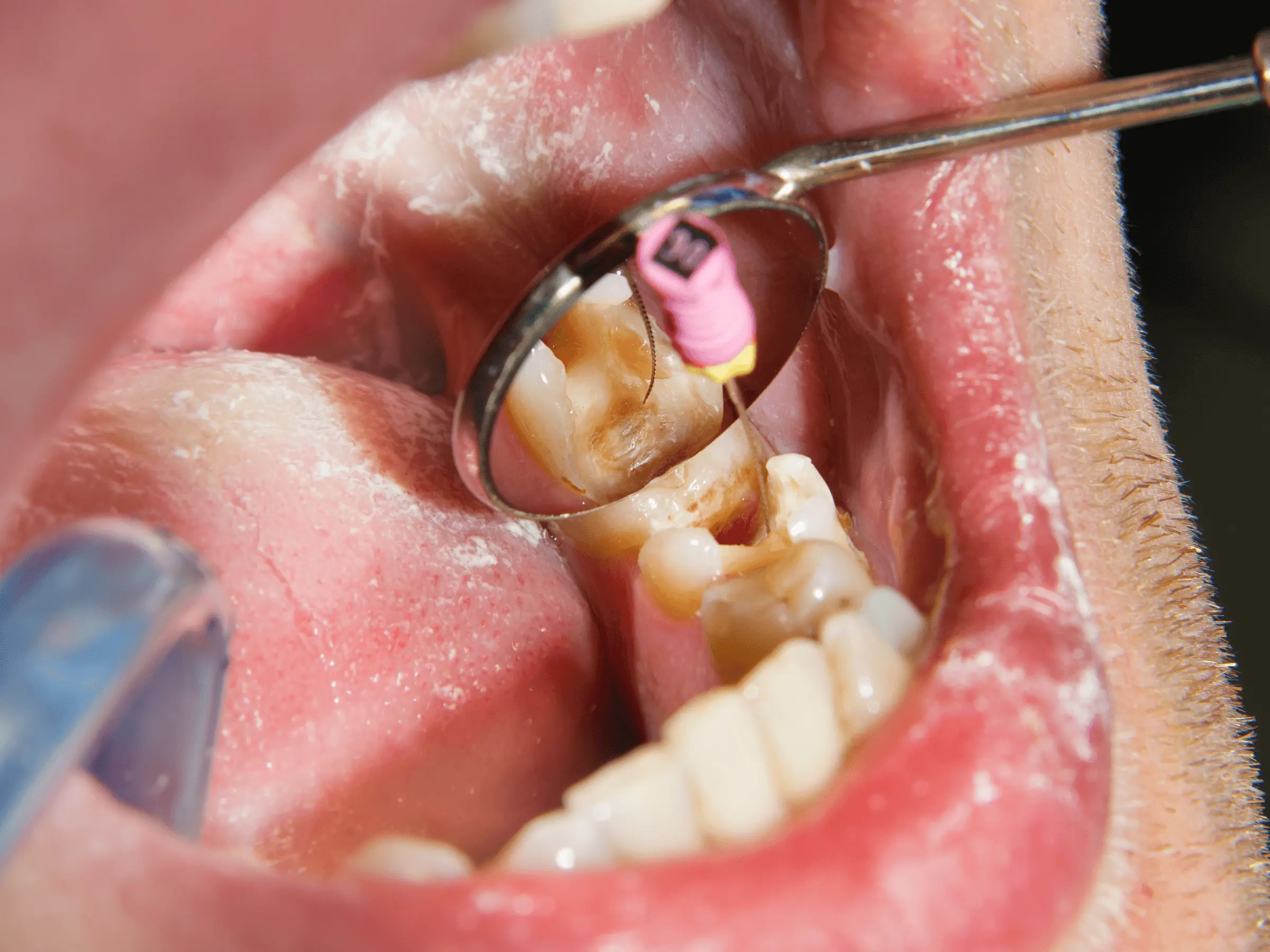Introduction
Dental implants are a popular and effective solution for people who have lost their natural teeth due to injury, decay, or other reasons. They are artificial tooth roots that provide a permanent base for replacement teeth. Dental implants are designed to mimic the look, feel, and function of natural teeth, and they offer several advantages over traditional dentures and bridges. In this article, we will discuss the importance of dental implants, factors that can cause dental failure, also symptoms, how to prevent it, treatment options, and the long-term success of dental implants.

Importance of dental implants
Dental implants offer many benefits that make them a popular choice for people with missing teeth. Unlike dentures and bridges, implants are permanent and do not need to be removed for cleaning or maintenance. They also look and feel like natural teeth, which can improve your self-confidence and overall quality of life. Dental implants can also help to maintain the structure of your jawbone and prevent the bone loss that can occur when teeth are missing.
What is implant failure?
Implants fail when they don’t integrate properly with the surrounding bone tissue, leading to instability, pain, and other complications. While dental implants have a high success rate, several factors can contribute to implant failure.
Factors that can cause an implant to fail
Poor oral hygiene
Maintaining good oral hygiene is crucial for the success of dental implants. Poor oral hygiene can lead to the accumulation of bacteria and plaque around the implant, which can cause inflammation and infection.
Infection
Infection is another common cause of implant failure. If an implant becomes infected, it can compromise the stability of the implant and lead to bone loss.
Smoking and tobacco use
Smoking and tobacco use can also increase the risk of implant failure. Nicotine and other chemicals in tobacco can interfere with the healing process and reduce the blood flow to the implant site, which can impede the integration of the implant with the surrounding bone tissue.
Medical conditions
Certain medical conditions, such as diabetes and autoimmune disorders, can also increase the risk of implant failure. These conditions can interfere with the body’s natural healing processes, making it more difficult for the implant to properly integrate with the surrounding bone tissue.
Insufficient bone density
For dental implants to be successful, there must be sufficient bone density in the jaw. If there is not enough bone tissue to support the implant, it may not be able to integrate properly and may eventually fail.
Symptoms of dental implant failure
If you are experiencing any of the following symptoms, it is important to contact your dentist as soon as possible, as they may indicate implant failure:
- Pain and Discomfort: Pain and discomfort around the implant site may indicate that the implant is not properly integrated with the surrounding bone tissue.
- Swelling and Inflammation: Swelling and inflammation around the implant site may indicate infection or other complications.
- Mobility of Implant: If the implant feels loose or unstable, it may be a sign that it is not properly integrated with the surrounding bone tissue.
- Receding Gums: Receding gums around the implant site may indicate that the implant is not correctly positioned or that there is bone loss around the implant.
- Visible Bone Loss: If you can see exposed bone around the implant site, it may be a sign of implant failure.
How to prevent a dental implant to fail
There are several steps you can take to help prevent implant failure, including:
- Regular Dental Check-Ups: Regular dental check-ups are important for maintaining good oral health and catching any potential problems early on.
- Good Oral Hygiene Practices: Maintaining good oral hygiene is crucial for the success of dental implants. This includes brushing twice a day, flossing regularly, and using an antiseptic mouthwash to kill bacteria.
- Avoiding Smoking and Tobacco Use: If you smoke or use tobacco products, quitting is one of the best things you can do to protect the health of your dental implants.
- Managing Medical Conditions: If you have a medical condition that increases your risk of implant failure, it is essential to work with your doctor to manage your condition and reduce your risk.
- Adequate Bone Density: If you do not have sufficient bone density to support a dental implant, your dentist may recommend a bone graft to strengthen the jawbone before placing the implant.
Treatment options for dental implant failure
If your dental implant fails, there are several treatment options available, including:
- Removal of Implant: In some cases, it may be necessary to remove the failed implant and allow the surrounding bone tissue to heal before attempting another implant.
- Bone Grafting: If there is not enough bone tissue to support a new implant, a bone graft may be necessary to strengthen the jawbone before placing a new implant.
- Implant Replacement: If the implant has failed due to problems with the implant itself, your dentist may recommend replacing the implant with a new one.
The long-term success of dental implants
With proper care and maintenance, dental implants can last for many years. To ensure the long-term success of your implants, it is important to:
- Follow-up Care: Attend regular check-ups with your dentist to monitor the health of your implants and address any potential problems early on.
- Lifestyle Changes: Making healthy lifestyle choices, such as quitting smoking and eating a balanced diet, can help to improve the overall health of your teeth and gums.
- Implant Maintenance: Proper implant maintenance, including regular brushing and flossing, and professional cleanings, can help to prevent complications and ensure the longevity of your implants.
Conclusion
Dental implants offer many benefits for people with missing teeth, but implant failure can occur if proper care is not taken. By following good oral hygiene practices, avoiding smoking and tobacco use, managing medical conditions, and ensuring adequate bone density, you can help to prevent implant failure. If your implant does fail, there are treatment options available to restore the health and function of your teeth. With proper care and maintenance, dental implants can provide a long-lasting and effective solution for people with missing teeth.


